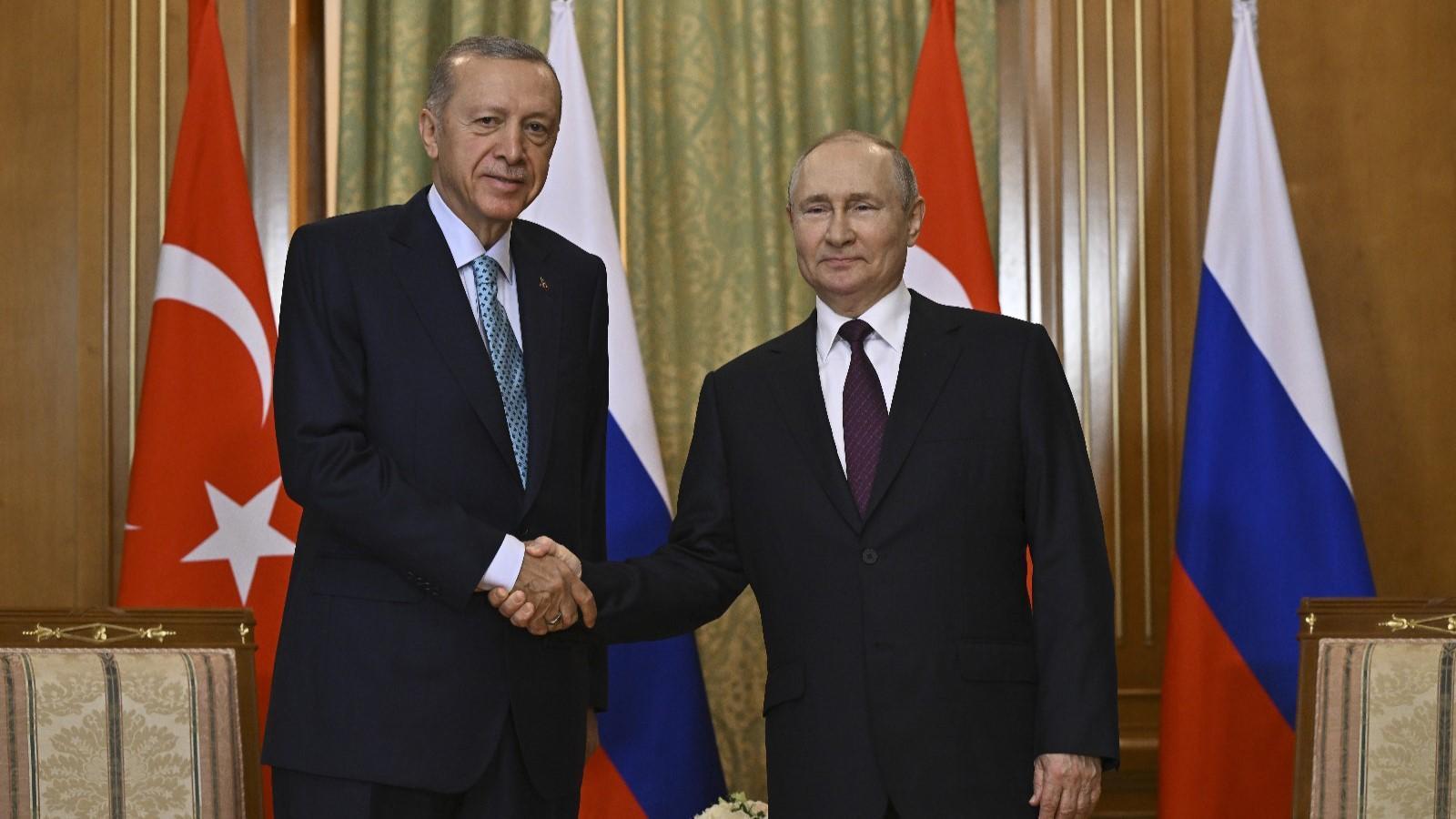
President Recep Tayyip Erdoğan held a phone conversation with Russian leader Vladimir Putin on Nov. 24 to discuss bilateral relations and regional developments.
During the call, Erdoğan emphasized Türkiye's commitment to strengthening cooperation with Russia, particularly in increasing trade volume between the two countries, the Communications Directorate said in a statement.
The Turkish leader also reiterated Ankara's ongoing efforts to reduce tensions in the region and its dedication to contributing to peace processes.
In an address at a fair in Istanbul the day earlier, Erdoğan welcomed the recent International Criminal Court (ICC) arrest warrants for Israel's prime minister and former defense chief.
"We consider the implementation of this courageous decision by all parties to the [ICC] agreement important for restoring humanity's trust in the international system," Erdoğan told the event.
Hailing the arrest warrants issued Nov. 21 by the ICC for Benjamin Netanyahu and his former defense minister, Yoav Gallant, over Israel's actions in Gaza, Erdogan asserted that countries supporting Tel Aviv were "fueling atrocities," despite often "lecturing" others on democracy and human rights.
In the landmark move, the ICC issued arrest warrants for Netanyahu and Gallant for alleged war crimes and crimes against humanity in Gaza.
As for international organizations and media, Erdoğan said they were turning "a blind eye to crimes against humanity" in Palestine, Lebanon and elsewhere.
"The blood of those martyred and injured in Palestine stains not only their killers but also those who fail to stop them," he added.
Voicing hope to see the establishment of an independent, and sovereign Palestinian state with East Jerusalem as its capital, Erdogan called on the Islamic world to put differences aside, take a joint stance and act as one.
"Unless hearts beat collectively, there can be no success against the aggressors and observers," he said.
"This is the only way we can help our Palestinian and Lebanese brothers and sisters, the innocent and oppressed in Sudan, Yemen and many other countries."
The president said NGOs should strengthen their enforcement mechanisms and increase the harmony between each other.
Israel has launched a genocidal war in Gaza following a cross-border attack by the Palestinian group Hamas in October last year, killing more than 44,000 people and injuring over 104,000.
It has also engaged in cross-border warfare with Lebanon, launching an air campaign in late September against what it claims are Hezbollah targets.
Over 3,600 people have been killed, with more than 15,300 injured and over a million displaced since last October, according to Lebanese health authorities.
Israel faces a genocide case at the International Court of Justice for its war on Gaza.
Meanwhile, Erdoğan will convene the cabinet on Nov. 25 to address pressing issues, including regional conflicts, economic challenges and municipal governance.
The meeting was set to focus on Israel’s ongoing conflicts in the region and the potential risk of escalating tensions.
On the domestic front, the cabinet will review critical economic measures, including setting the minimum wage for 2025, raising salaries for civil servants and retirees and intensifying efforts to combat inflation.
In addition, the appointment of trustees to several municipalities will be under consideration.